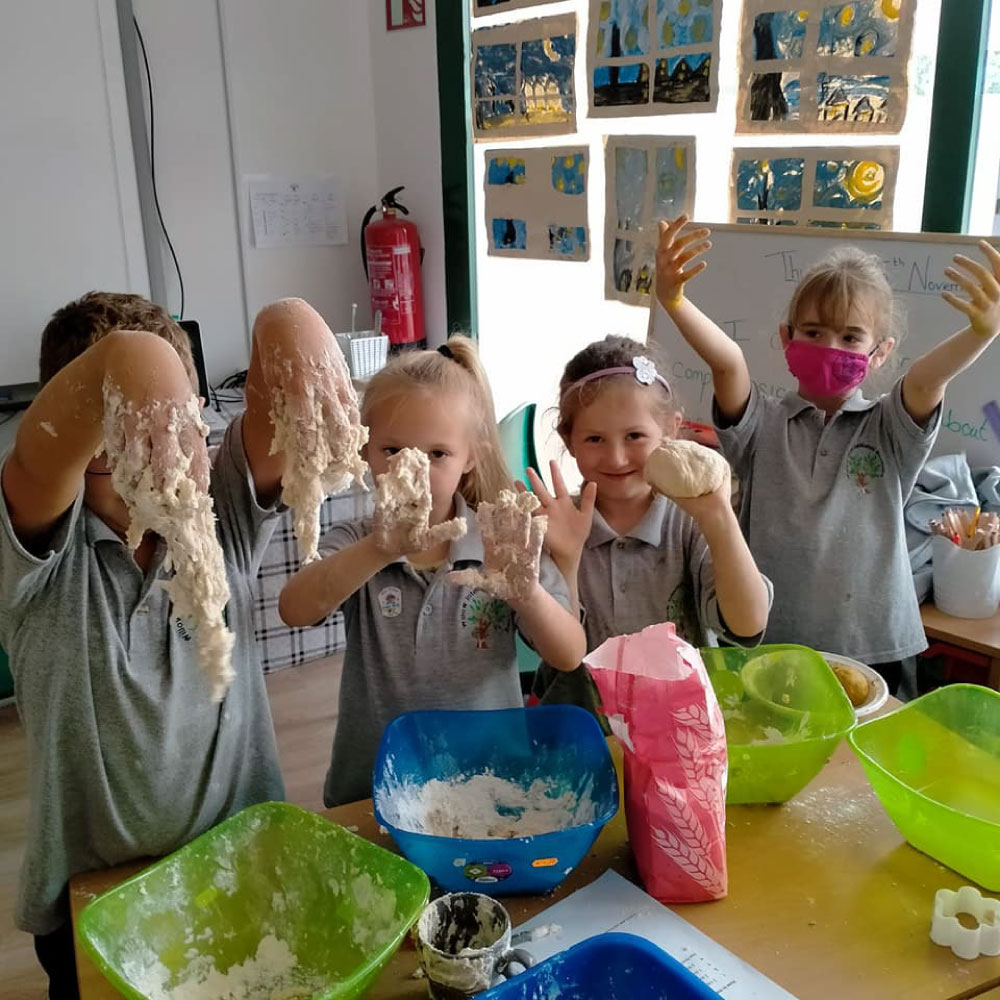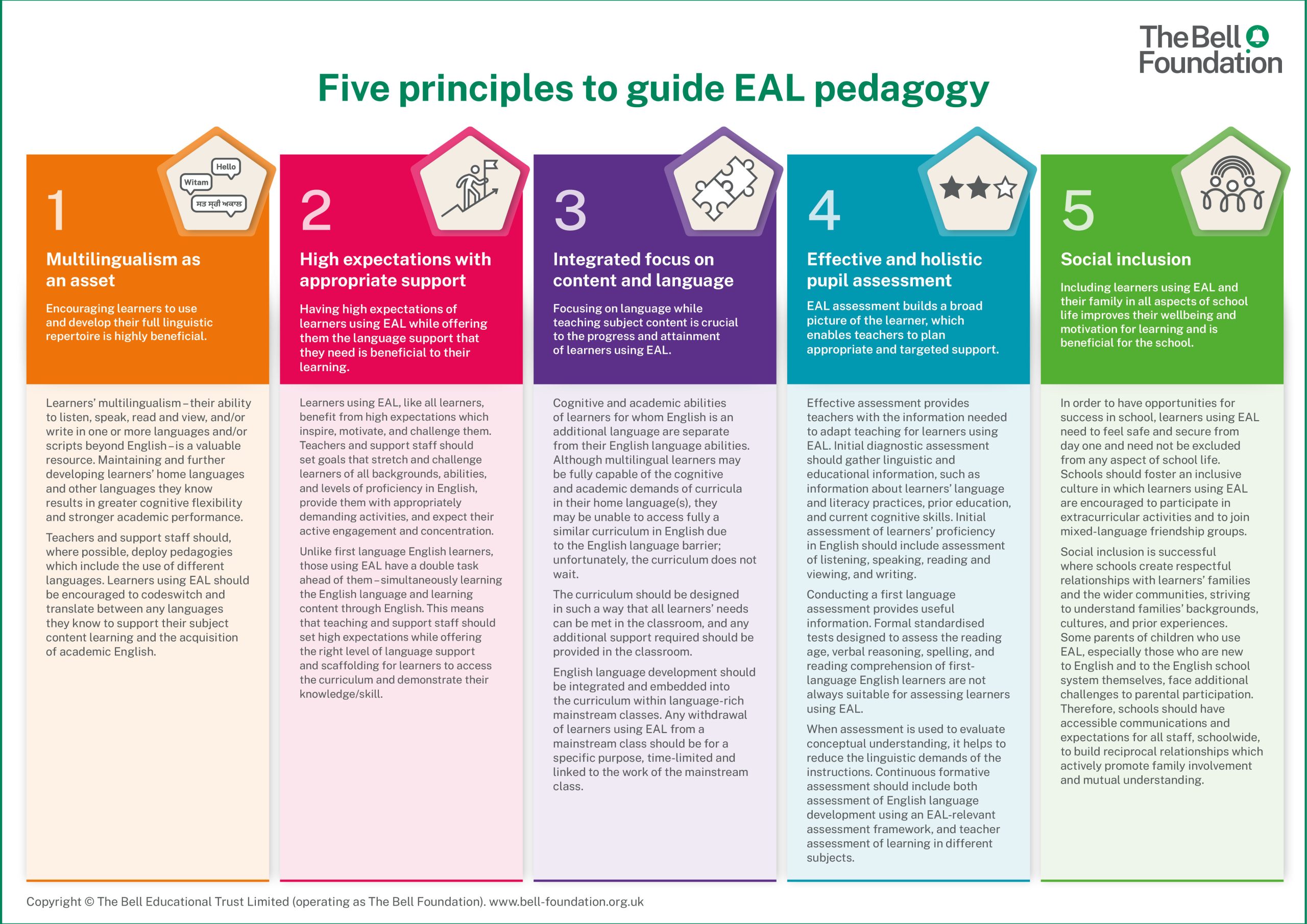Academic Principles
The British System
Willow International School is an independent (full-time) school which charges fees to attend, instead of being funded by the government. The school provides a United Kingdom (U.K) based academic curriculum which closely follows the U.K. English National Curriculum. The curriculum subjects provided are the same as a U.K. state maintained, school.
The National Curriculum is a set of subjects and standards used by primary and secondary U.K. schools, so children learn the same things and experience a consistent education, year on year. It covers what subjects are taught and the standards children should reach in each subject. Through curriculum references, standards are tracked and maintained by all staff.
The National Curriculum is organised into blocks of years called ‘key stages’ (KS). At the end of each key stage, the teachers formally assess the children’s performance. These assessments are used to formally track progression and help to highlight any barriers to learning for students who may display a requirement for Special Educational Needs (SEN) learning. All students joining the school are screened for the requirement of SEN provision.
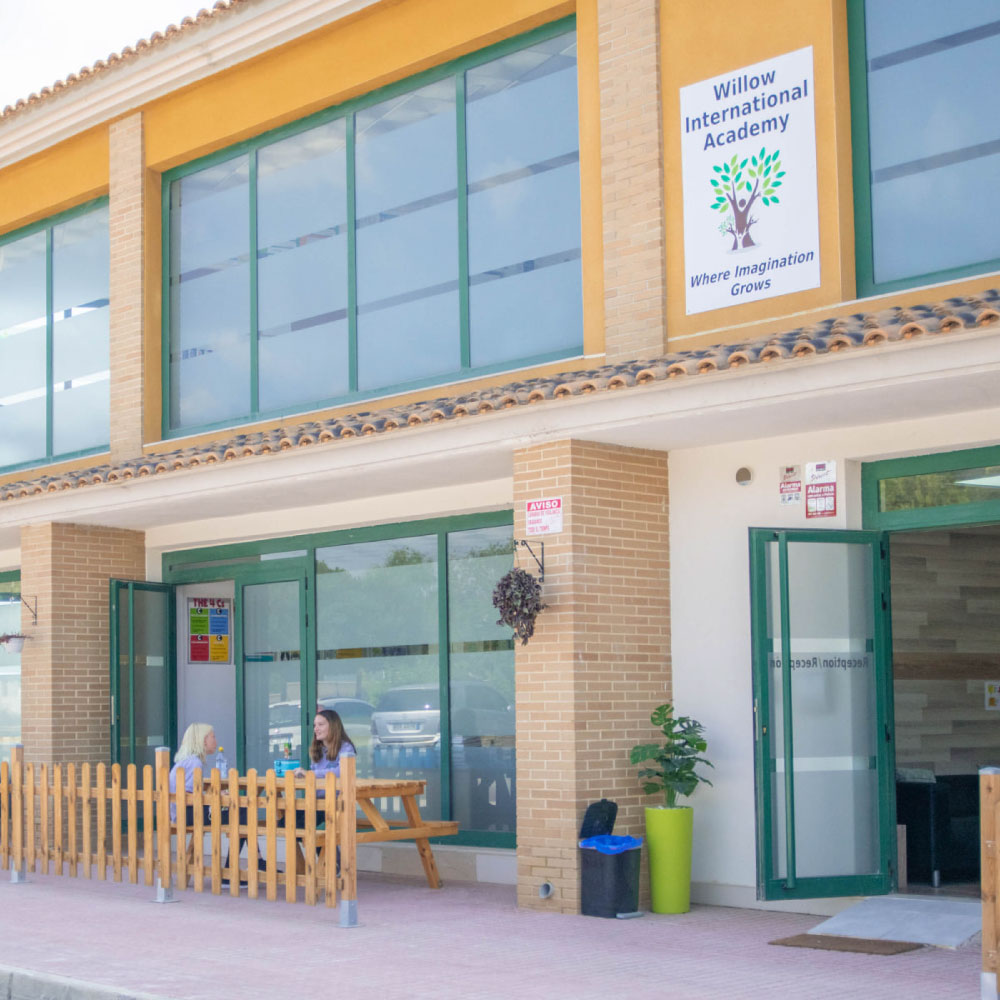
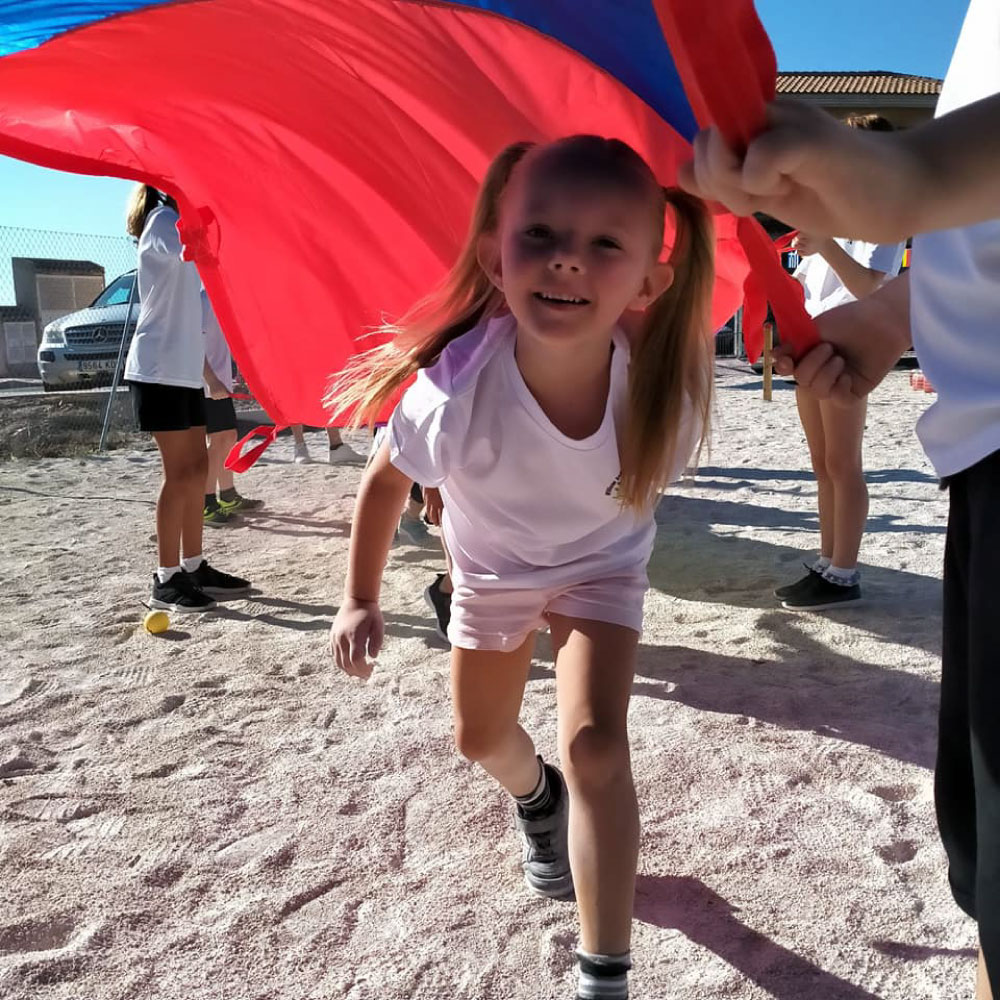
Primary School – KS1 & KS2
Key Stage 1
Our aim is for children to enjoy their time at school and to develop knowledge, understanding and values in order to reach their full potential in all academic and social areas of school life.
The work of each year group is guided by the appropriate level of the English National Curriculum, Key Stage 1, which is by nature broad and balanced. Subject areas include English Language, Mathematics, Science, Geography, History, Design and Technology, Art and Craft, Music, Physical Education, Health Education, Religious Education and Information Technology.
In Language and Literacy we aim to provide a rich and stimulating environment in which children find interest and pleasure in communicating in English. They are offered many experiences to develop their interest in reading with fluency, accuracy, understanding and enjoyment. The development of handwriting skills forms an important part of Language and Literacy. At this early stage, the children also start their Modern Foreign Language (MFL) tuition through the study of the Spanish Language.
Secondary School – KS3 & KS4
Key stage 3
Transition from Primary
Starting Year 7 is a big step in a child’s education and marks the point where, under the British system, students move from being in Primary to Secondary School. We acknowledge the anxiety this move can sometimes cause and work with Year 6 pupils to help them prepare for their first day in Secondary. As part of the transition process our own Year 6 are taught some lessons in Mathematics, Science and English by Secondary specialists and come over to the Secondary building to experience them in the same rooms they will be using from Year 7 – including the Secondary Science Lab. We also run a specific transition day in May/June of Year 6 where all pupils are invited to the Secondary School for the day and participate in taster lessons, activities and workshops that allow them to meet their form tutors and teachers they will be seeing from September.
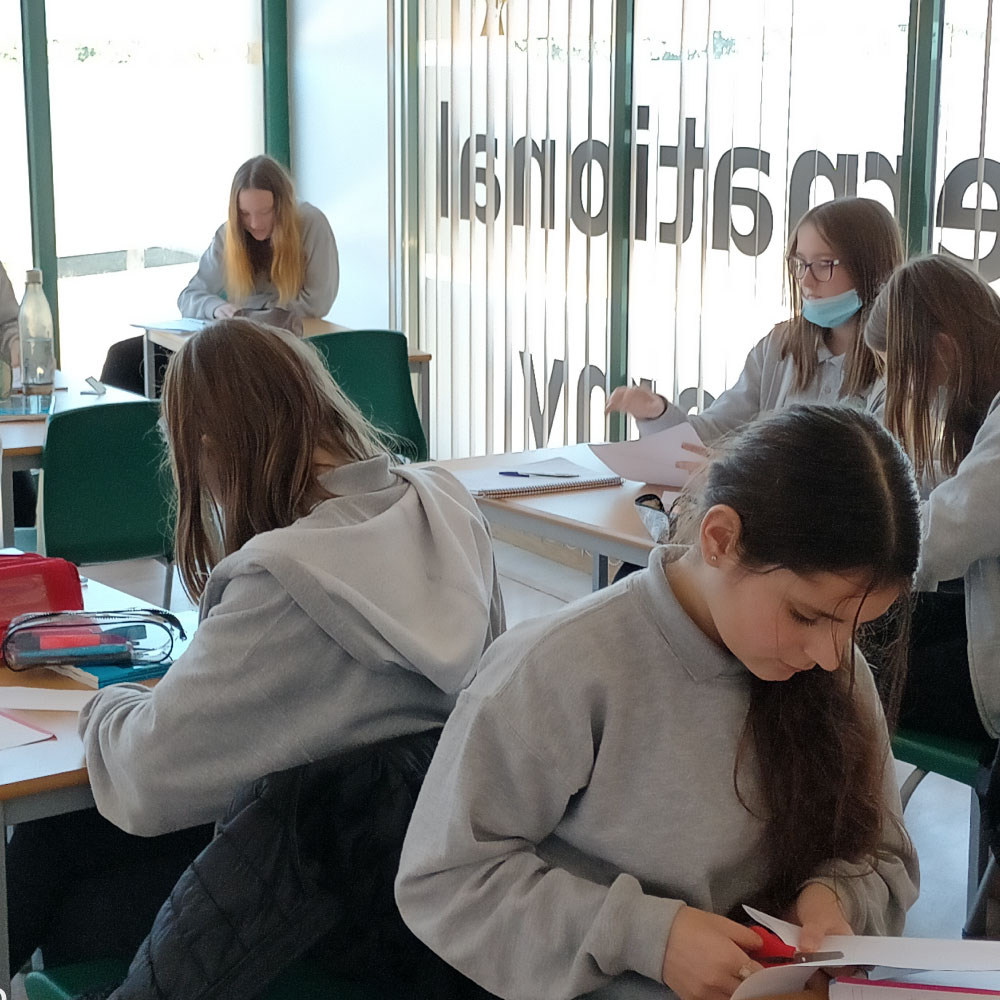

A Level College
A level College
I am delighted to introduce our post-16 curriculum offer from September 2024. It gives me great pleasure to welcome you to our Sixth Form at Willow International School (WIS). At WIS we welcome students from around the world to our vibrant, multi-cultural and inclusive learning community.
With the support of highly qualified and experienced U.K. and Spanish teachers. Our A level students are able to select from a range of GCE International Advanced Level (AIL) courses, allowing them to centre on core subjects which prove relevant to the majority of modern-day career & higher education pathways.
Available Subjects:
English Language
Maths
Spanish
Business Studies
We do not provide a ‘glass ceiling’ for any student and aim to be a school that nurtures a genuine passion for learning, delivering a truly well-rounded, holistic education. At WIS we don’t simply aspire to enable our students to achieve their goals, but we aim to inspire them to exceed their own expectations. In addition, our Sixth Form students experience a warm and friendly atmosphere with well-rounded support.
Pastoral Care
Teaching and non-teaching staff will offer the best guidance to pupils as they grow and develop in the school.
For younger pupils the class teacher and learning assistant are the initial points of contact for help and advice, either through their class teaching or on an individual basis. Our dedicated pastoral and wellbeing leader ensures all pupil’s needs are planned for and met through the curriculum and assembly programme.
In the Secondary school, a designated teacher will be responsible for the academic and social welfare of his/her tutor group. This may be via the Personal, Social and Health Education (PSHE) programme, year group assembly, or more informal contacts during the daily tutor period, which starts each school day. Visiting speakers also add a further dimension to our provision of “pastoral care”. Senior members of staff in the Secondary school are responsible for both the PSHE programme and the wider aspects of pastoral care. Staff training ensures that students are given the best possible advice.
